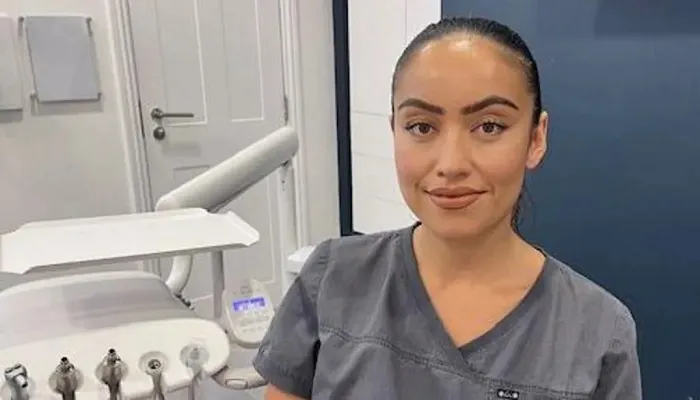A dentist has raised concerns about the increasing number of people seeking treatment for painful and broken ‘Turkey teeth’—a term used to describe poorly executed dental work, particularly from overseas procedures.
Dr. Kath Stahl, a dentist practicing in East Yorkshire, said more people are pursuing the “Hollywood smile” after being drawn in by glossy social media ads and the relatively low cost of dental procedures abroad. However, she warned that many young people with healthy teeth are opting for “inappropriate” treatments, including dental crowns, simply to achieve a certain aesthetic.
Despite warnings from the NHS and professional dental organizations over the past few years, Dr. Stahl’s practice has seen a rise in patients with issues caused by overseas dental work.
Her echo concerns of a plastic surgeon who reported that “cosmetic tourists” are increasingly seeking emergency treatment from the NHS after botched procedures abroad. Matt Smith, a consultant plastic surgeon in Lincoln, said he now treats one or two patients a month suffering from complications such as infections, sepsis, and poorly fitted breast implants after overseas surges.
Dr. Stahl, who works at Highgate Dental Practice in Beverley, shared an example of a patient who had multiple crowns and bridges fitted in Turkey. The woman came into the practice complaining of “blood clots” in her mouth and had no idea that the subpar dental work was causing pain by “stabbing” her gums.
Dr. Stahl expressed concern about the influence of social media and reality TV on young people, saying they are often encouraged to seek cosmetic procedures for perfectly healthy teeth. “They might have a row of perfectly healthy teeth, but they go for treatments like a full mouth of crowns, which is completely inappropriate for them,” she said.
Fitting dental crowns typically involves removing 60-70% of a person’s natural tooth substance permanently. Dr. Stahl emphasized that there is no such thing as “risk-free” dental treatment. While some procedures may be successful, she noted that in many cases, things go wrong—crowns break, gums become sore, and infections occur.
Furthermore, patients who have saved up for overseas treatments may struggle to afford the necessary corrective procedures in the UK. Dr. Stahl explained that fixing poorly done work from abroad can be challenging because the original procedures and materials used are often unknown.
In addition, some UK dentists are wary of attempting repairs on overseas work, fearing potential legal liability if things go wrong.
The NHS has warned prospective patients about the risks of overseas dental work, advising them to be cautious of hard-selling tactics and pressure to make quick decisions. The NHS also emphasized the importance of discussing potential complications and aftercare before traveling for treatment.
Dr. Stahl urged anyone considering cosmetic dental work to first consult a UK-based dentist. If they choose to go abroad, she advised thorough research and choosing a clinic that genuinely cares about the patient’s health. She also stressed the importance of understanding the potential aftercare needs.
“If it sounds too good to be true, it probably is,” she cautioned. “If the deal is really cheap for the work you want, then it may not be as good as it seems.”
Related topics:

